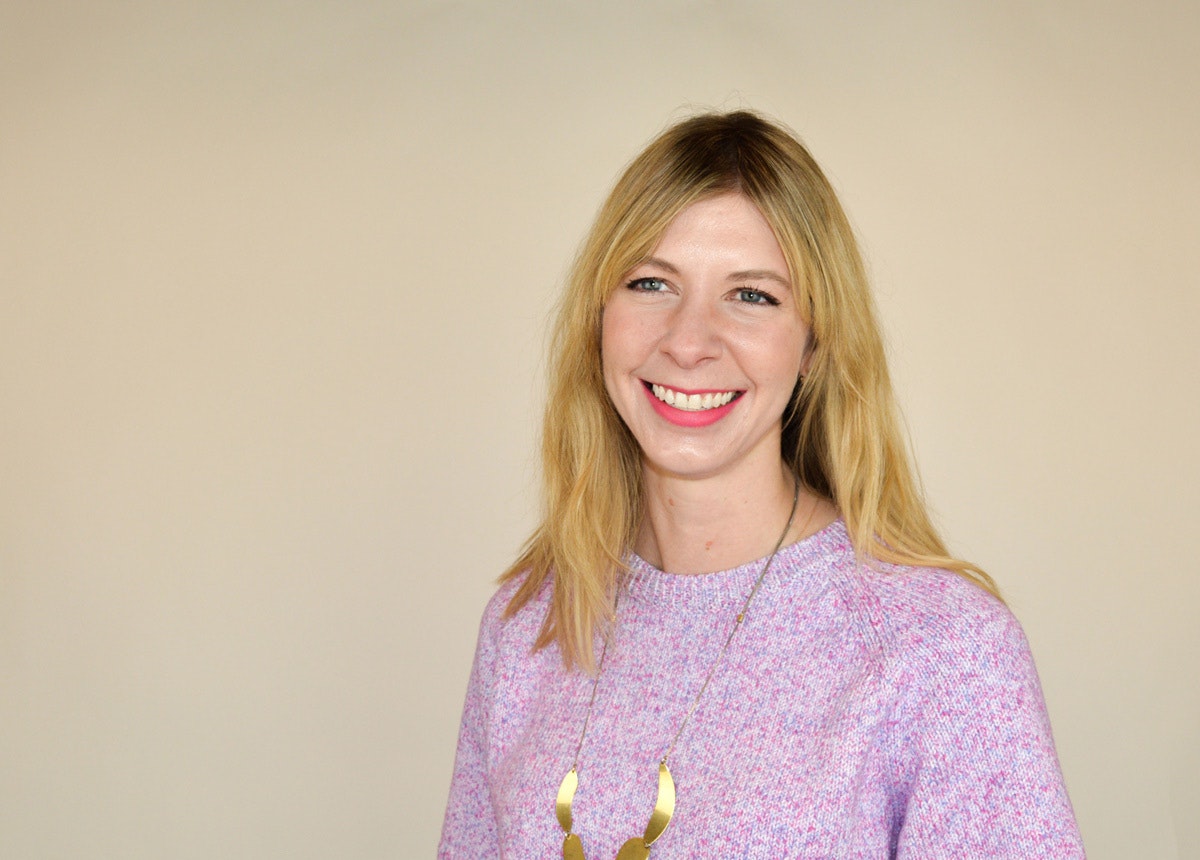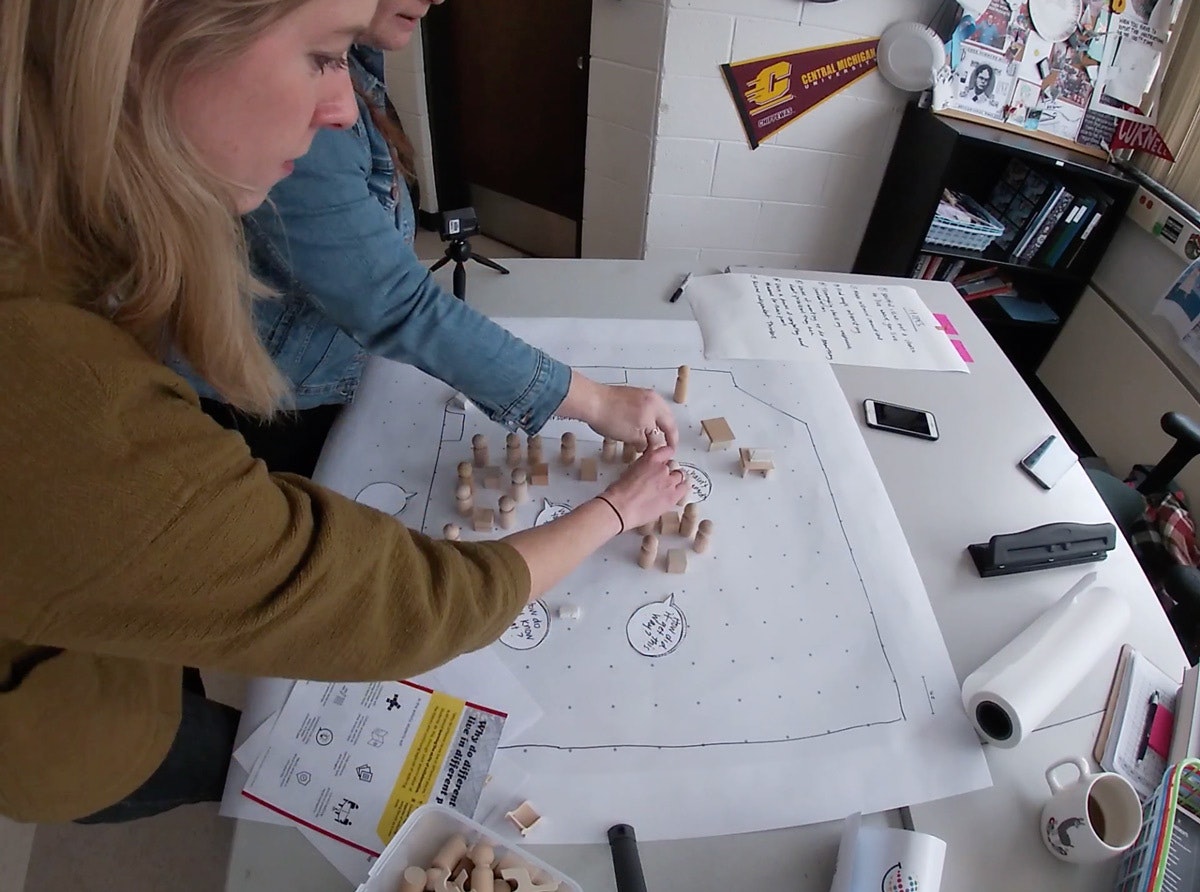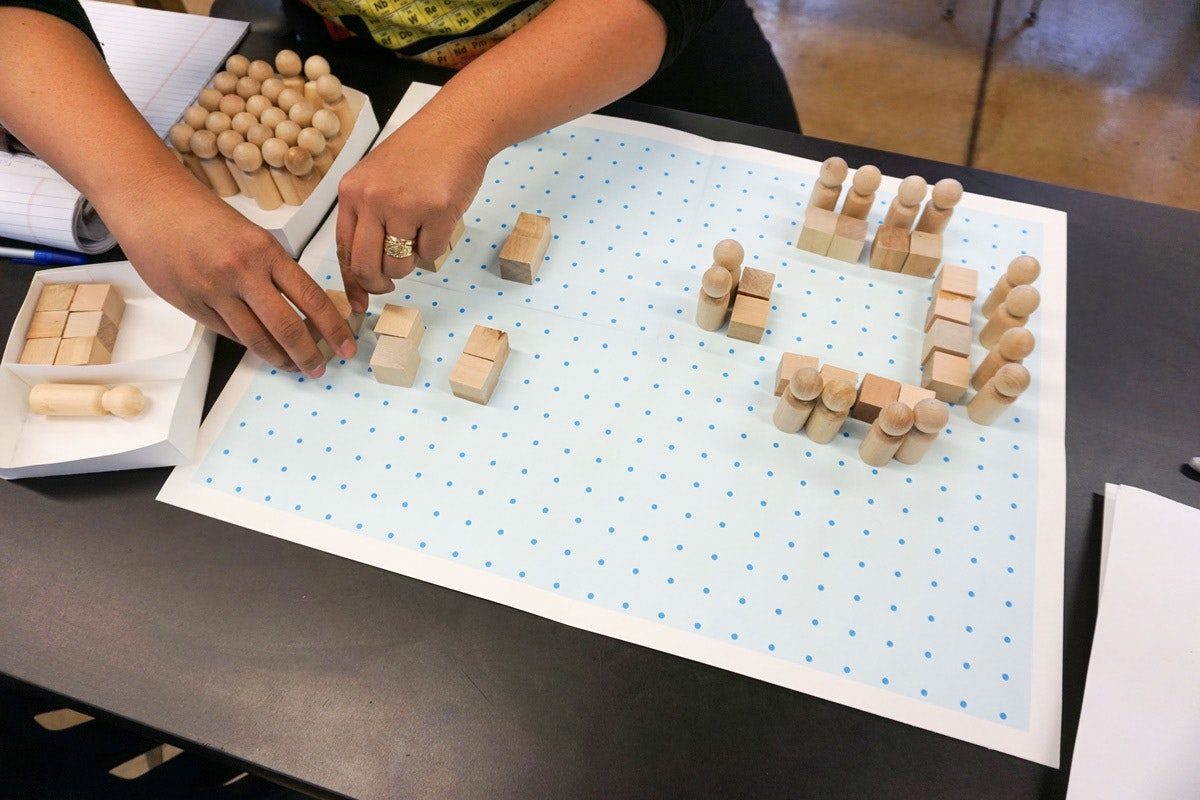Class of 2020 Spotlight: Megan Freund (MDes ‘20)
Many high school history teachers in Metro Detroit support the idea of incorporating more social justice lessons in the classroom, but they're still not doing it themselves.
Design researcher Megan Freund (MDes '20) found that teachers were sometimes daunted by the complexities of social justice conversations in the classroom. She wondered if she could help teachers stop dreading these conversations and start having them through a powerful driving question: what if social justice conversations could be life affirming?
For her thesis project, Freund partnered with the Equitable Futures project, a U.S. history curriculum developed within Oakland Schools that promotes social justice by sharing stories of Detroiters who fought for change during the Civil Rights era. Freund wanted to learn why, despite positive feedback for the program, more teachers weren't signing up for it. To do this, she met with teachers across the region in their classrooms for one-on-one workshops about design methods that might help them better communicate the challenges of teaching students about social justice.

Through the iterative process of observing, prototyping, and reflecting with teachers, she eventually centered on a method she hadn't anticipated: play.
"I had included a set of wooden blocks and figures representing people in my prototyping kit, and I found that when teachers engaged with these materials, they dropped their defenses and would say or model instructional challenges that hadn’t come up in conversation," she says.

Using these insights, Freund developed an Equitable Futures Play Kit, including the wooden blocks and figures, a “play mat” to represent the classroom and a set of prompt cards. Before the COVID-19 pandemic, she prepared a workshop for 28 teachers-in-training to test the play kit and its ability to help teachers express, identify, and solve for challenges that might get in the way of teaching curricula like Equitable Futures to their students.
Before the project, Freund says she would never have considered play as a solution. ("I don’t think of myself as an especially playful person," she says.) But today, as we face unprecedented and difficult decisions about how we live together, rebuild our economy, and care for each other, she sees plenty of cases to be made for it. She hopes her work encourages others to do the same.

"Just because the problems we’re solving are hard doesn’t mean the process needs to be met with equal duress," she says. "If there’s a method that enables us to experience joy while working together to face these tremendous challenges, I believe it will lead to better outcomes."
Freund's own desire to take on big social problems with design solutions made her feel like an outsider in the tech industry, where she worked to design customer experiences and products for startups that became household names. Finding the MDes program and a cohort of like minded peers were affirmations.
"I was reassured to know there was a place in the discipline for designers like me, and that there were people out there who also believed design was capable of accomplishing more than pushing pixels," Freund says. "I was very excited to be part of a progressive group of design trailblazers."
But there were also plenty of challenges. Freund says fully committing to the work meant taking a hard look at — and changing — her own habits, tendencies, and self-narrative. It also required a shift in process. While designing digital interfaces, Freund says it was easy to hide behind screens. But MDes' insistence on community involvement and accounting for the real thoughts, needs, and desires of an audience was a new way of working she will continue throughout her career.
"Working with humans is messy, complex, and frustrating, but more importantly, it’s inspiring, fulfilling, and fun," she says. "The sense of connection you feel while co-creating new possibilities with others is deeply satisfying."